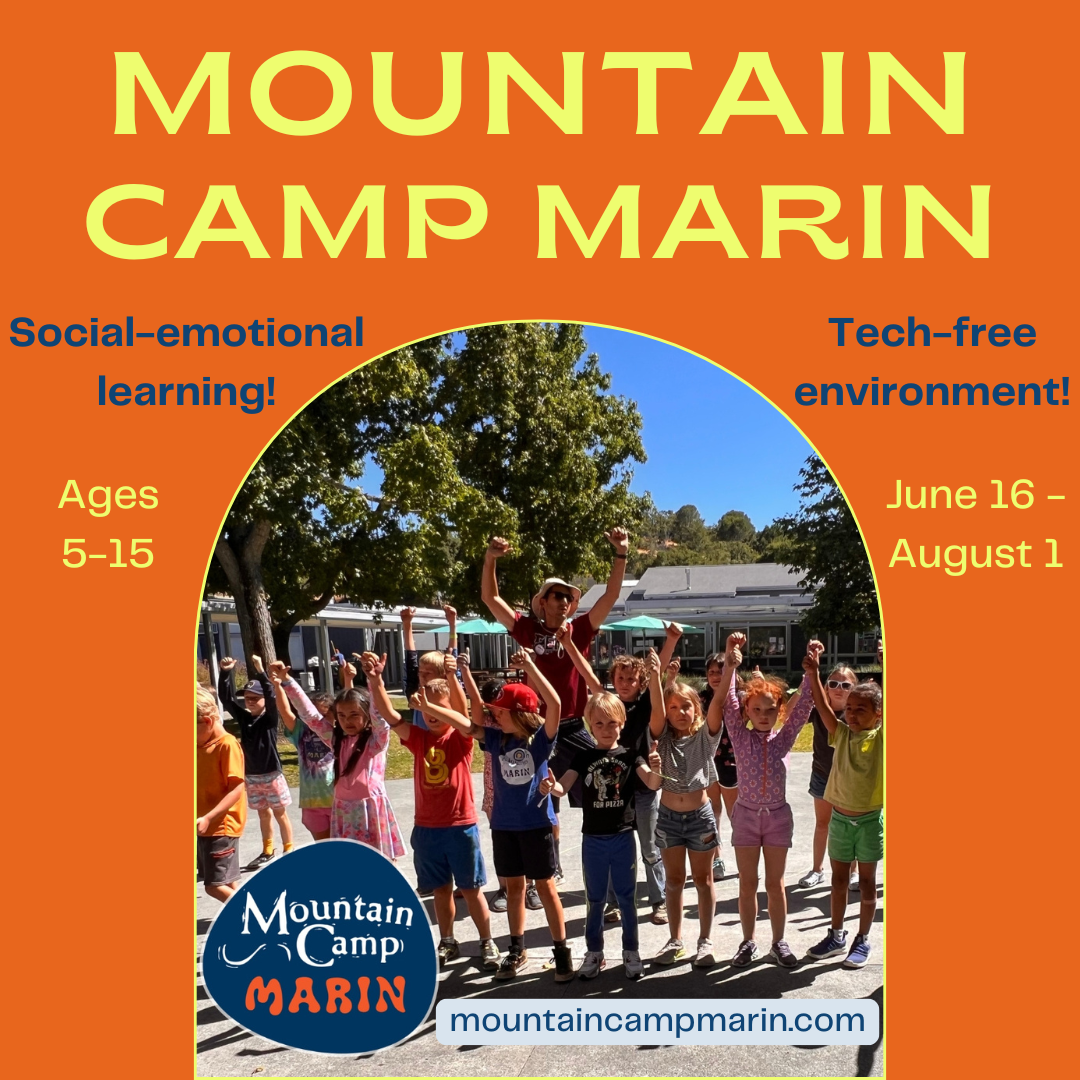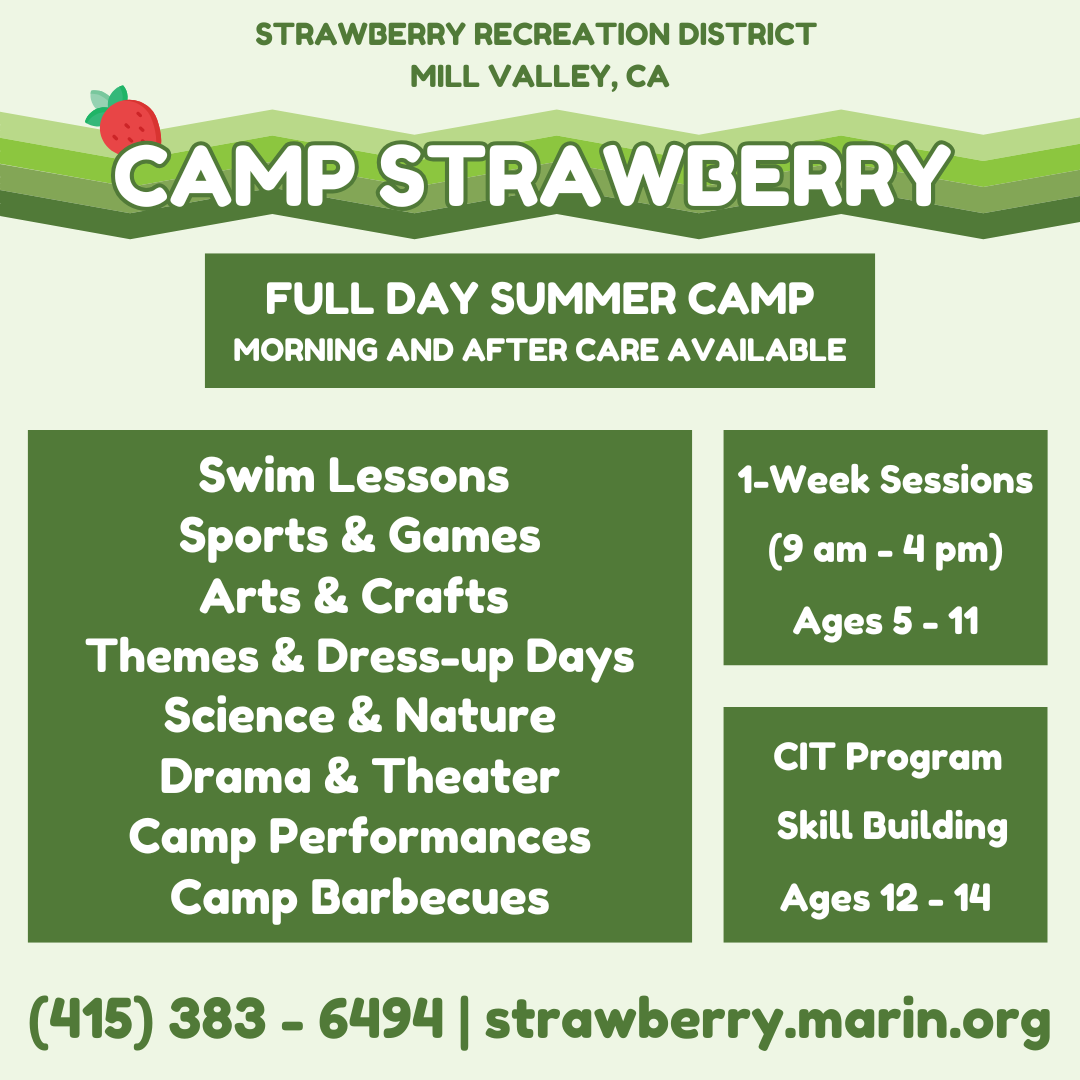Yong Zhao, Ph.D.: Are American Students Ready To Thrive in the 21st Century?
/Yong Zhao, Ph.D.
21st Century Education: Cultivating Creative & Entrepreneurial Talents Education
Tuesday, Feb 23, 2016 6:30-9pm
Mill Valley Community Center
One Ronnie's Awesome List Subscriber will score 2 tickets.
Don't wait - tickets will sell out!
Yong Zhao, Ph.D., is a thought leader, scholar, educational expert, and award-winning author. On February 23rd, he will be the guest speaker at the Speak to Me event discussing 21st Century Education: Cultivating Creative & Entrepreneurial Talents Education. I am excited to bring to you an exclusive interview with Yong Zhao, Ph.D.
What is at the heart of you're talk at the Speak to Me event on February 23rd?
We have been practicing one model in education I call the 'Employee Oriented’ model for too long. Schools prepare students to take existing jobs, groom them to get into college, and a path to better jobs. But evidence suggest that this will neither breed excellence or improve equity. More important, this model is outdated and will unlikely bring success to individuals or the society. Society is changing rapidly so our children shouldn't look at today's careers but encouraged to create their own. Which leads me to the new educational paradigm I will discuss, the 'Entrepreneurial Oriented’ model.
Can America be creative and innovative as it transitions to Common Core?
No, Common Core is mandated and overly prescriptive so there is little room for creativity or innovation. Children are born with curiosity and the capacity to satisfy that curiosity by exploring the world in creative ways. Instead, we teach our kids to be passive and regurgitate answers that have already been discovered. We are not teaching children to have confidence or to be active and proactive. You cannot prescribe a narrow set of subjects and expectations for all children. Children shouldn't be required to learn specific subjects at the expense of experiences that they are interested in. Common Core takes a traditional ‘Employee Oriented’ model where all children are presumed to be deficient. When children come to school, we have standards and tests to judge them and hopefully they will meet prescribed expectations. Schools teach children merits which they feel the society values. Test scores or instructional outcomes for knowledge are short term. Confidence, value, and interest of a subject are the long term educational outcomes we should pursue. As a human being what should matter isn’t necessarily reflected in a test score.
I have a 12 year old daughter so I have a vested interest in the state of education now. What can I do today to help support her education in the way you and many other experts define as quality education to prepare her future?
The 'Entrepreneurial Oriented’ model helps identify a child's strengths and uniqueness. My suggestion, figure out what she is really good at but do not force her to study things she does not have a passion for or not good at. If you are good and passionate, someone is going to want you to be there or create your own career. Pursue what you want to do and what you are good at. Life is not about working for someone but your enjoyment and your contribution to others.
What would your perfect school look like?
My school would be free of constrains and impositions on children but provides rich and thoughtfully planned opportunities. I would call it a 'learning museum of opportunities' where adults work with children to develop their learning experience. Children would take more charge in what they are learning and adults will guide them and make it more challenging. It would be like walking into a museum and seeing all kinds of exhibits and you decide where you want to spend more time and decide how much you want to learn by talking to experts. I would have suggested paths but with the flexibility to let a child explore and experiment in a rich environment.
If you could change the current education system, what would you change?
Three things:
- The mindset of educators and policy makers to fix someone based on prescribed standards and tests, which may or may not be relevant to their future.
- Federal and State government to retreat from over-governing. To stop test based accountability and using these tests as if they are the golden standards to prove the quality in education. A child shouldn't be looked at as a test taker but a human being.
- Students need to be stakeholders of their education. Grant students more autonomy. Young children know a lot more than most of us would like to think. They can make schooling more relevant to them then just going to school passively and accept what ever happens.
The Senate overwhelmingly passed new national education legislation ending No Child Left Behind Act and sending significant power back to states and local districts while maintaining limited federal oversight of education. Is this a step in the right direction for public schools?
It’s definitely the right direction but not sufficient. They still have testing requirements, which makes it difficult for school districts to abandon testing. Many states have to struggle to design a new accountability systems. I’m concerned that the No Child Left Behind Act has already turned the mindset of many educators, leaders, and policy makers to use standards and testing to measure accountability. They can treat the new law as an opportunity to realize the policies of No Child Left Behind did work. They need to think of a new paradigm rather then fixing or improving the old one. That’s why I don’t think this new law goes far enough. It’s not a shift. It’s a slight improvement.
You made an appearance in the film Beyond Measure along with other thought leaders including Sir Ken Robinson, Daniel Pink, Alison Gopnik, Jo Boahler and others. With all these people identifying common issues, why are our public schools still obsessed with standardized testing, homework and overachieving?
There's a belief that testing reflects a child's abilities. No Child Left Behind created testing outcomes as absolutely necessary. It incentivizes stakeholders to comply with limited options. When your job and reputation is on the line, it further strengthens the old culture. There are also third parties making a lot of money that supports testing, textbooks, and preparation and that is entrenched in driving this move. Public schools are in a tough place. I talk to many public school leaders and teachers; they have a good heart. They want education to be right. Many people agree but at the same time they face a legal framework where they have to produce good test scores and this leaves little room to think outside the box.
What changes in US education have you seen from the time you started your career to now?
I arrived in the U.S. in 1992 which is when, at the federal level, an over obsession of standards and testing began. What’s worse is over the last 20 years the world is going through amazing changes. Technology, such as the Internet, social media, robotics; U.S. education over the last 20 years could have re-imagined itself but instead we squandered opportunities and resources and went backwards. We should have led the world rather than catch up.
If you could turn back the clock, what would you change that would have helped the U.S. education?
I would have put the billions of federal dollars currently being used into hands of local teachers and citizens to stimulate innovations. The National Science Foundation has successfully done that for science and technology. Invest in new ideas.. Can you imagine all the innovation we could have come up with by now? We could have come up with new paradigms like High Tech High which is the school featured in the movie, 'Beyond Measure.' We should have more schools like that. I would not attempt to fix our old system; it's not how innovation happens.
What charities speak to your heart?
In the Bay Area is the Childhood Creativity Center, advocates for the critical importance of creativity development in childhood and to inspire the next generation of innovators, thought leaders and problem-solvers.
I wish there was a nonprofit teaching children around the world peace and peace resolution. It’s important for children to learn how to resolve conflict across countries and cultures.
Don't miss Yong Zhao Ph.D., world renowned expert on education and global trends, who will share his fascinating research and insight on how the world has fundamentally changed, how the American education system stacks up, and what talents are required to succeed in the future. Tickets are on sale now.


















